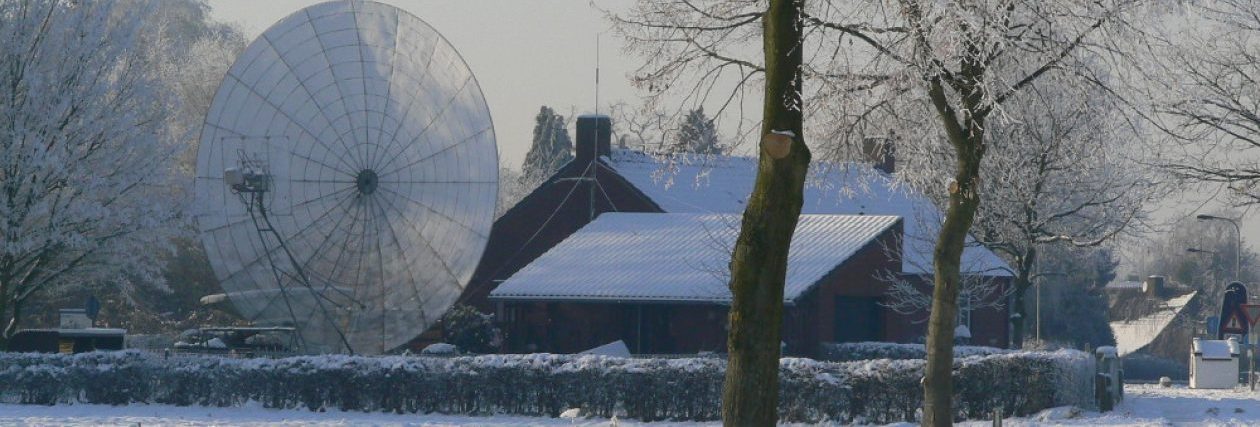In a discussion I had with Peter, SM2CEW and Graham, F5VHX, the idea grew to make simple low pass filters. Simple but suitable for fairly high power. The idea originated from a design by M.W. Cook, AF9Y. The scan of the article gives no details about the magazine it originates from.
He describes an simple low pass filter, according to his finding suitable for 2 kW power. Off course I didn’t have the same PCB material available as he did, but a short search on the internet provided the formulas to calculate the capacitance. Even a online PCB capacitance calculator popped up HERE
The schematic presented by AF9Y
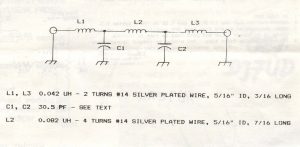
My prototype of the 144 PCB LP filter
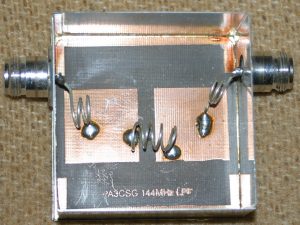
The measured results can be seen here. Special thanks go to Jack, PE1KXH
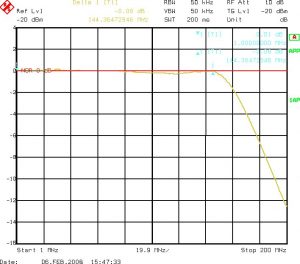
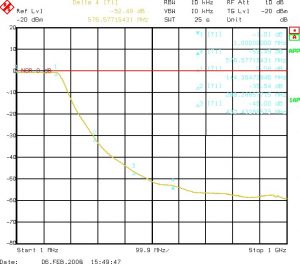
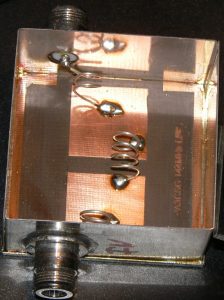
As you can see the losses are very low and the attenuation on the harmonic frequencies are very good especially for such a simple filter. This filter was never tested on high power (>300W)
The breakdown voltage of modern teflon based PCB materials is very high, many kilovolts! Never try this with ordinary FR10 board unless you want to make some serious “smoke signals”.
Several low pass filters were build and the results were very good. I didn’t test the 50 MHz version or the 144 MHz version on high power, but the HF filter has been in service for a few years now without any trouble.
The 50 MHz version was based on a design found HERE A picture of the 50 MHz version is below. I never used this filter but it had similar results on the bench as the original design.
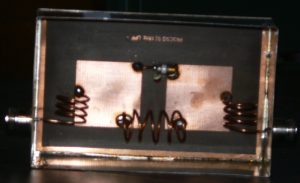
I soldered the unetched side of the board to a tin plate in order to use it as a cooling plate. I never had any trouble with the HF version at 1.2kW.
Below a photo of the 30 MHz version. If you look closely on the left and right inductor there are some small capacitors. These are normal 100V ceramic capacitors. I didn’t expect them to hold the power, but they did! A spice simulation showed also that they should “survive”.
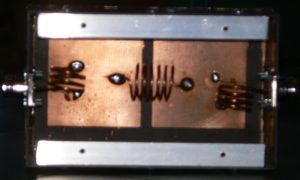
There is enough software around for calculating filters. You can have your play with it. Don’t try to get “the most” from your filters but go for an extra stage if you need more attenuation. Use the online capacitance calculator to get the dimensions for your specific PCB material.
Have fun!
